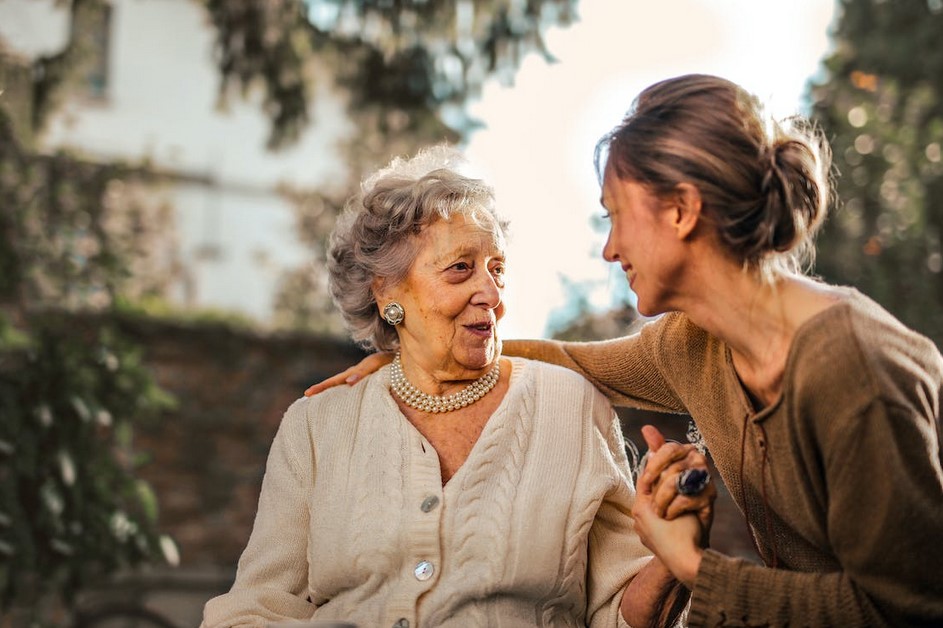Siblings Sharing the Care

When caring for a family member, established family dynamics and unresolved or new conflicts tend to be common pitfalls. How can we “share the care” without creating unnecessary struggle? It all comes down to family members making key decisions together; reaching consensus on dividing the caregiving tasks; and working as a team.
Here are six tips to minimize family conflict when caring for aging relatives:
- Stay on Equal Footing: Siblings who are the primary caregiver for their parents often become the “experts” and this can feel intimidating for long-distance siblings or for those working full-time or raising a family. This lack of confidence may manifest as criticism simply because that sibling “doesn’t know.” The primary caregiver can be so used to “doing it all,” they may have difficulty letting go of the reins. Be honest about what each sibling needs; inviting each other into a dialogue around problem solving puts everyone on level ground.
- Be Careful How Competent You Are: Caregivers become highly competent when it comes to caring for elderly parents. Sometimes, siblings don’t realize the primary caregiver needs a break because they make it look so easy. Caregivers, be open and willing to share your feelings of burnout and ask for help. And siblings, always assume the primary caregiver needs a break!
- Give Yourself Extra Time: One of the best ways out-of-town siblings can pitch in is to help in person. If it’s a respite situation, allow time to talk before relieving the primary caregiver so that person doesn’t feel rushed or stressed about getting all the information down. If you’re the primary caregiver, be specific about the type of help needed and give yourself enough time to write a detailed list.
- Don’t Forget About Each Other: Spend time with your brother or sister; nurture the bond and relationship you have. Keep the lines of communication open not just as it concerns parents but with your own lives. Your relationship with your sibling will continue long after your parents have died and it’s important to maintain those family ties.
- Know what you want: If you’re the main caregiver, be clear. Do you want a sibling to relieve you at some point? Do you want whoever can afford it to hire someone to come in and help you? Or do you prefer to oversee everything, but want to be acknowledged and thanked?
- Be part of the solution: If you find yourself in conflict with a family member, step back to gain some perspective. Consider your role in the conflict and ask yourself if you’re acting out an old family role or resentment. Avoid talking when angry and seek support and insight from a trusted third party.
-
By
Family Caregivers BC
-
Published
Dec 14, 2022
-
Subject Area
- Caregiving & Caregiver Support
- Caregiving & Caregiver Support
- Health & Wellness - General
- Non-Medical Home Supports
- Immigrants, Refugees, & Multicultural Seniors
- Indigenous Peoples & Indigenous Relations
- Elder Abuse, Frauds, & Scams
- Social Connectedness & Social Isolation
- Health & Wellness - Cognitive & Mental
- Social Connectedness & Social Isolation
- Health & Wellness - Cognitive & Mental
- Training & Professional Development
- Intergenerational Initiatives
- Information, Referral, & Advocacy
-
Audience
- Caregivers, Seniors & Volunteers
- Service Providers (Non-profits, Community Organizations, Local government)
- Caregivers, Seniors & Volunteers
- Service Providers (Non-profits, Community Organizations, Local government)
-
Category
- Best Practices
- Mentorship & Coaching
- Training & Capacity Building
- Leadership & Development
- Success Stories
Newsletter
Sign up for the Healthy Aging CORE BC e-news to keep up-to-date with activity from the platform and the Community-Based Seniors Services (CBSS) sector across the country.
